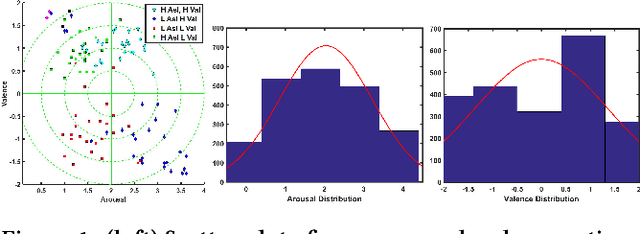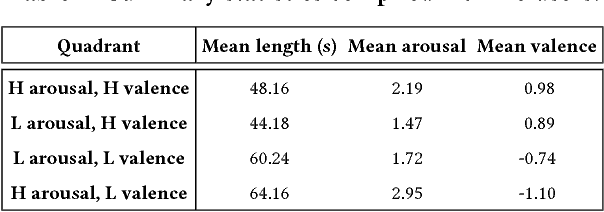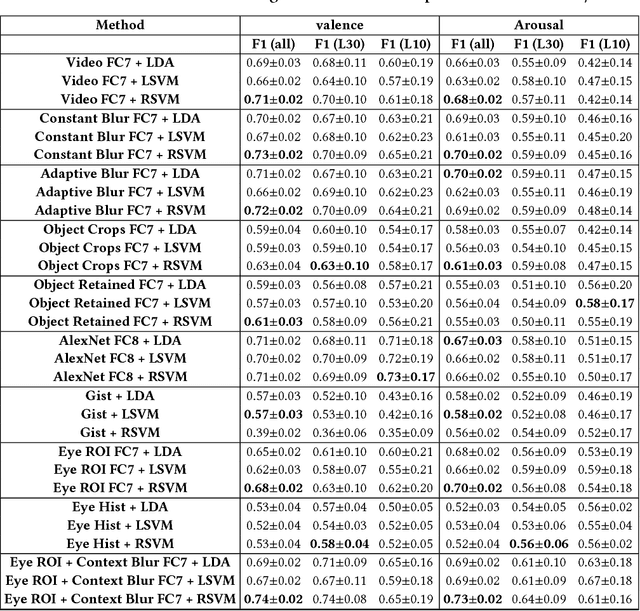Looking Beyond a Clever Narrative: Visual Context and Attention are Primary Drivers of Affect in Video Advertisements
Paper and Code
Aug 14, 2018



Emotion evoked by an advertisement plays a key role in influencing brand recall and eventual consumer choices. Automatic ad affect recognition has several useful applications. However, the use of content-based feature representations does not give insights into how affect is modulated by aspects such as the ad scene setting, salient object attributes and their interactions. Neither do such approaches inform us on how humans prioritize visual information for ad understanding. Our work addresses these lacunae by decomposing video content into detected objects, coarse scene structure, object statistics and actively attended objects identified via eye-gaze. We measure the importance of each of these information channels by systematically incorporating related information into ad affect prediction models. Contrary to the popular notion that ad affect hinges on the narrative and the clever use of linguistic and social cues, we find that actively attended objects and the coarse scene structure better encode affective information as compared to individual scene objects or conspicuous background elements.
 Add to Chrome
Add to Chrome Add to Firefox
Add to Firefox Add to Edge
Add to Edge